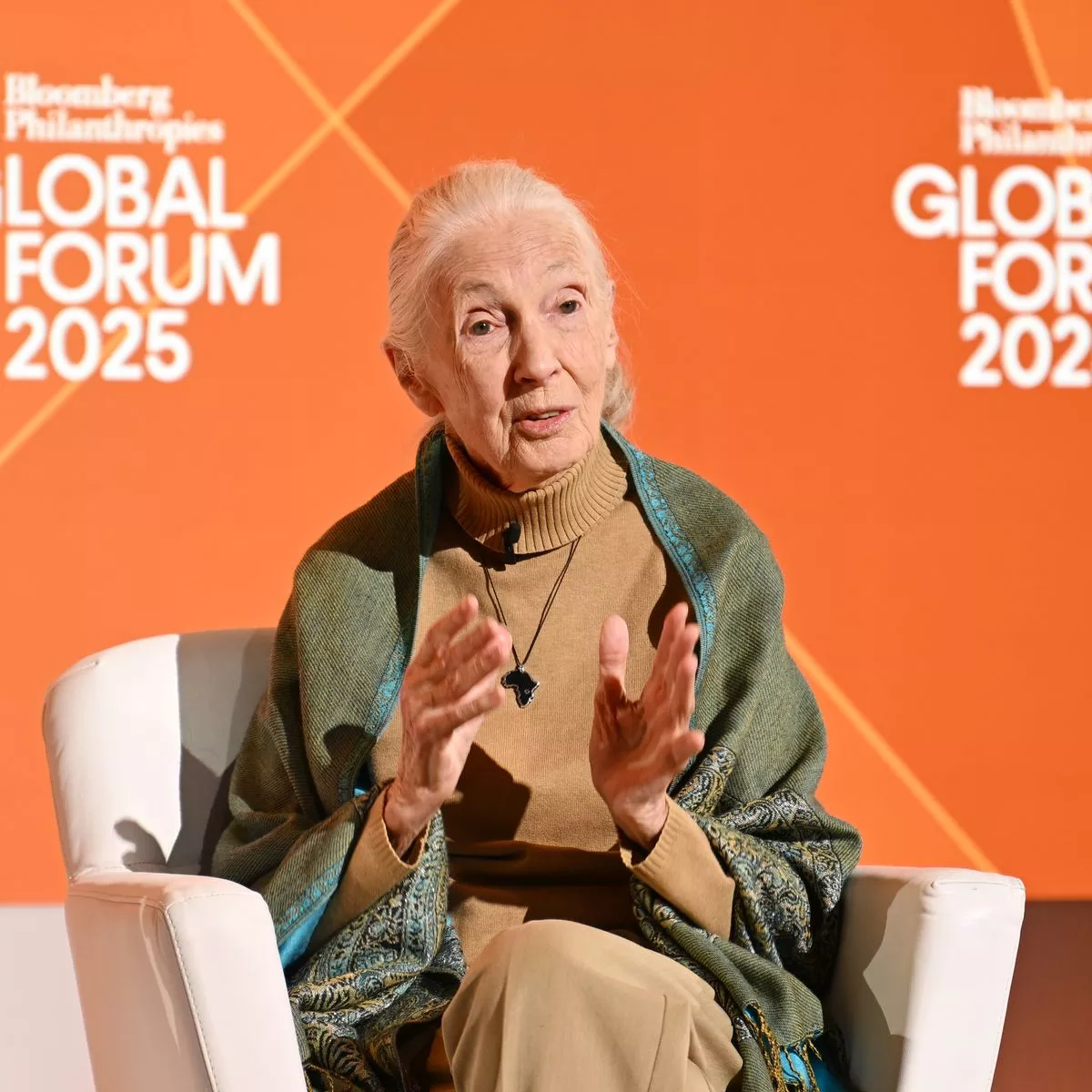
Jane Goodall, the famed conservationist known for her expertise on chimpanzees and her globe-spanning advocacy of environmental causes, has died.
Goodall, a UN Messenger of Peace and Founder of the Jane Goodall Institute, was 91.
The Jane Goodall Institute confirmed the news on Instagram.
View this post on Instagram
What we know:
The organization said she died of natural causes in California while on a speaking tour across the U.S.
She had been scheduled to meet with students and teachers on Wednesday to launch the planting of 5,000 trees around wildfire burn zones in the Los Angeles area. Organizers learned of her death as the event was set to begin at the EF Academy in Pasadena, California, said spokesperson Shawna Marino. The first tree was planted in Goodall’s name after a moment of silence.
What they’re saying:
“Dr. Goodall’s discoveries as an ethologist revolutionized science, and she was a tireless advocate for the protection and restoration of our natural world,” the institute said in a statement.
“When we listen to [young people’s] voices [they] actually are changing the world and making it better for people, for animals, and for the environment because everything is interconnected.”—Dr. Jane Goodall, DBE,
Make a difference through our youth program, @RootsandShoots! pic.twitter.com/8ZcNQgNBFc
— Dr. Jane Goodall & the Jane Goodall Institute (@JaneGoodallInst) November 8, 2023
Jane Goodall’s work
The backstory:
Goodall, born in London in 1934, traveled to Kenya in 1957 and met the famed anthropologist and paleontologist Louis Leakey. In 1960, at his invitation, she began her groundbreaking study of chimpanzees in what is now Tanzania.
Her field research revolutionized the field of primatology, helping transform how scientists and the public perceive the emotional and social complexity of animals. She was the first to observe that chimpanzees engage in activities previously believed to be exclusive to humans, such as creating tools, and she demonstrated that they have individual personalities.
Her findings were circulated to millions when she first appeared on the cover of National Geographic in 1963 and soon after in a popular documentary. A collection of photos of Goodall in the field helped her and even some of the chimps become famous. One iconic image showed her crouching across from the infant chimpanzee named Flint. Each has arms outstretched, reaching for the other.
David: “How did you first get to Africa?”
Jane: “With great difficulty.”
Audience: *Boisterous laughter*
Jane sat down with David Rubenstein on Sunday for a conversation at @92ndStreetY that earned many laughs from this #NYC audience.
📸 credit: Vladimir Kolesnikov pic.twitter.com/UGr5glXx93
— Dr. Jane Goodall & the Jane Goodall Institute (@JaneGoodallInst) October 3, 2023
In a 2021 interview with The Associated Press, Goodall recalled how her work with the chimpanzees led to a broader appreciation for nature as she spent hours by herself in the forest.
“Out there in nature by myself, when you’re alone, you can become part of nature and your humanity doesn’t get in the way,” she said. “It’s almost like an out-of-body experience when suddenly you hear different sounds and you smell different smells and you’re actually part of this amazing tapestry of life.”
In her later years, Goodall devoted decades to education and advocacy on humanitarian causes and protecting the natural world. In her usual soft-spoken British accent, she was known for balancing the grim realities of the climate crisis with a sincere message of hope for the future.
From her base in the coastal U.K. town of Bournemouth, she traveled nearly 300 days a year well into her 90’s to speak to packed auditoriums around the world. Between more serious messages, her speeches often featured her whooping like a chimpanzee or lamenting that Tarzan chose the wrong Jane.
When the COVID-19 pandemic hit in 2020 and halted her in-person events, she began podcasting from her childhood home in England. Through dozens of “Jane Goodall Hopecast” episodes, she broadcast her discussions with guests including U.S. Sen. Cory Booker, author Margaret Atwood and marine biologist Ayana Elizabeth Johnson.
“If one wants to reach people; If one wants to change attitudes, you have to reach the heart,” she said during her first episode. “You can reach the heart by telling stories, not by arguing with people’s intellects.”
